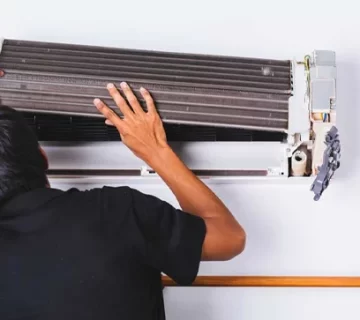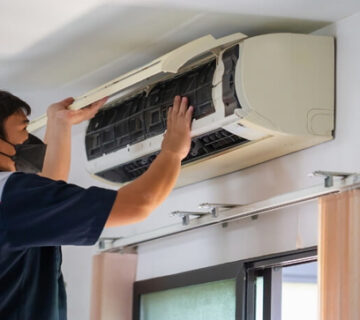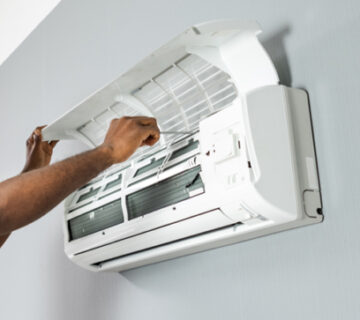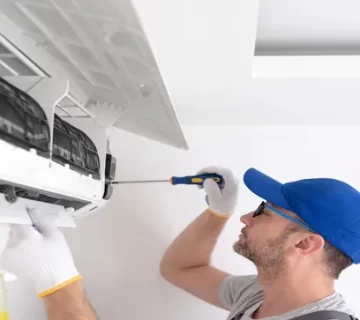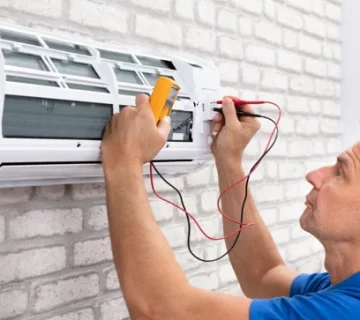The air conditioning compressor in your house is a vital part of the system and is frequently referred to as the “heart” of the apparatus. Its main job is to move refrigerant around the system which makes it easier for the heat exchange process that cools your house. The complete air conditioning system may malfunction, signs of bad AC compressor and leave your home uncomfortable and warm if the compressor isn’t working properly. Any fault in the compressor’s process of converting refrigerant from a low-pressure gas to a high-pressure gas stops the cooling cycle.
In order to remove heat from interior air, air conditioners employ a refrigerant gas that goes through a cycle of compression and condensation. Your system’s ability to control refrigerant flow is compromised when the compressor malfunctions, which lessens the amount of cooling power that your air conditioner can provide for your house. This may eventually result in expensive energy costs, ineffective cooling, and signs of bad AC compressor. By taking care of these problems early on you may save money on repairs and increase the longevity of your air conditioner.
Knowing the warning indicators of a malfunctioning Copeland Compressor in your home will enable you to act quickly to prevent more damage. Inadequate cooling, odd noises, frequent system shutdowns and higher energy usage are typical warning signs. To help you maintain the comfort of your house and the smooth operation of your air conditioning system, we’ll go over five major indicators that your signs of bad AC compressor or chiller compressor may be having problems in this blog.
Here are the 5 Signs of bad AC Compressor in your home
1. Lack of Cool Air
Not enough chilly air issuing from your vents which is one of the most evident indicators that your AC compressor is failing. In order for the air conditioner to cool the air refrigerant must be pumped throughout the system by the compressor. The refrigerant won’t circulate if it’s not working correctly which will prevent your house from reaching the ideal temperature. The air leaving the compressor may occasionally feel somewhat cool but not as cold as it should which is a symptom that the compressor is starting to fail. Numerous issues such a refrigerant leak or an internal compressor breakdown could be the source of this problem.
2. Unusual Noises Coming from the Unit
Unusual and unusual noises emanating from your air conditioner are another indicator that the compressor is failing. With the exception of the motor’s usual hum, a functioning compressor should allow the AC system to run quite quietly. On the other hand, loud pounding, grinding or clicking sounds may be a sign that certain internal compressor parts are worn out or broken. These noises typically indicate a struggling compressor motor or faulty components.Ignoring these sounds could result in a compressor breakdown that requires expensive repair or replacement. It’s critical to have a specialist examine the system as soon as possible to stop additional harm.
3. Frequent Tripping of the Circuit Breaker
The compressor in your air conditioner is probably taking too much power if it continually tripping the circuit breaker. The system may overload due to an overheating or malfunctioning compressor in this case the breaker will cut the electricity to stop additional damage. This problem not only interferes with the cooling process, but it may also be a sign that your compressor is not operating as well as it should and may be approaching its end of life. It is not advisable to disregard a circuit breaker that trips regularly since this may indicate a more serious problem with the electrical parts of your air conditioning system.
4. Increased Energy Bills
Your compressor may be the cause if your energy bills have suddenly increased without any discernible changes in how often you use your air conditioner. The air conditioner has to work harder than usual to maintain the desired indoor temperature when the compressor isn’t working properly. Your utility costs reflect the higher energy usage that results from this increased effort. A failed compressor may cause the air conditioner to run longer cycles, which will use more energy even if it is still cooling your home. In addition to being expensive increased energy use is a sign that your air conditioning system is becoming less effective. A failed compressor will eventually deteriorate even more increasing energy costs and perhaps resulting in breakdowns.
5. Unit Won’t Start
When your air conditioner won’t start at all that’s a more serious indication of a compressor failure. The compressor is the major part that makes the cooling process possible the air conditioning system cannot operate without it. Your home may not have air conditioning if the compressor has failed entirely and you are unable to turn on the machine. Numerous problems, including electrical failure overheating, or mechanical damage could be the cause of this. If the compressor is beyond repair it could occasionally be necessary to replace the entire air conditioning system. But before making that snap decision it’s crucial to have the issue professionally diagnosed to see if a replacement or repair is the best course of action.
Conclusion
It’s critical to identify the warning indicators of a malfunctioning AC compressor in your home in order to keep your living space comfortable and prevent expensive repairs. These warning indicators which range from a lack of cool air and odd noises to frequent circuit breaker trips and increasing energy costs suggest that the AC compressor in your home may be malfunctioning. Early intervention can stop more serious damage and maintain the efficiency of your air conditioning system especially in the sweltering summer months.


